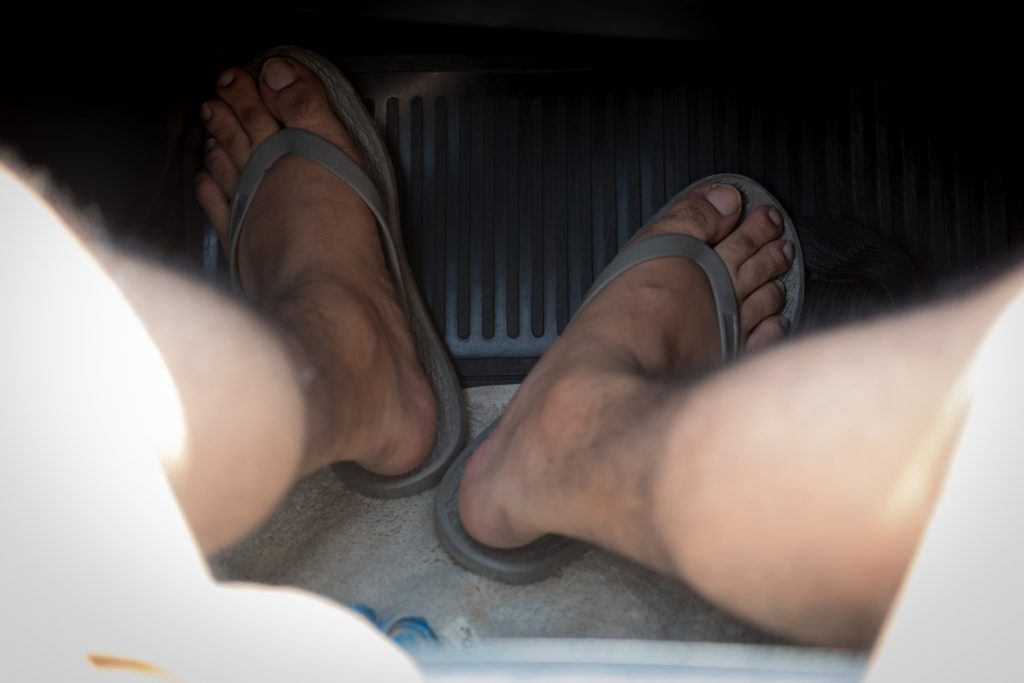Many drivers in Nigeria wonder, “is it illegal to drive in flip flops?” While it is common to see people driving in sandals, slippers, or flip flops, understanding the legal and safety implications is essential. Driving safely requires proper footwear to maintain control, especially on busy Nigerian roads.
The Legal Perspective in Nigeria
Technically, there is no specific law in Nigeria that outright bans driving in flip flops. However, Nigerian traffic regulations require drivers to maintain full control of their vehicles at all times. If wearing flip flops contributes to an accident or reckless driving, a driver can be held liable.
Key takeaway: Driving in flip flops is not illegal, but it can make you legally responsible if it impairs your driving ability.
Why Driving in Flip Flops Can Be Risky in Nigeria
Flip flops may seem convenient, especially in hot climates, but they pose safety risks:
- Reduced pedal control: Thin soles can slip off pedals easily.
- Delayed braking: Loose footwear can slow reaction times in emergencies.
- Accidents during sudden stops: Flip flops may get caught under pedals.
- Lack of grip: Wet or worn flip flops increase the risk of sliding.
Safe Alternatives to Flip Flops While Driving
Drivers in Nigeria can stay comfortable without compromising safety by using:
- Closed-toe shoes with flexible soles
- Driving shoes designed for grip and comfort
- Sneakers or loafers with non-slip soles
- Avoiding heavy boots that restrict pedal movement
Tips for Nigerian Drivers Who Occasionally Wear Flip Flops
If you must drive in flip flops occasionally, follow these precautions:
- Keep spare shoes in the car: Switch to safer footwear before driving.
- Check pedal grip: Ensure flip flops are snug and won’t slip.
- Drive cautiously: Maintain extra distance and avoid sudden maneuvers.
- Practice emergency braking: Familiarize yourself with how flip flops respond on pedals.
- Avoid long trips: Longer drives increase the risk of discomfort and accidents.
Common Myths About Driving in Flip Flops
- Myth 1: Flip flops are completely safe for driving.
- Myth 2: Traffic authorities cannot hold you accountable for accidents caused by unsafe footwear.
- Myth 3: Driving barefoot is safer than flip flops — actually, it also reduces control and is risky.
Why Travo.ng Recommends Proper Footwear
At Travo.ng, we advise all drivers in Nigeria to prioritize safety over convenience. Proper footwear ensures better pedal control, quicker reaction times, and reduces accident risks. Even if it’s not illegal to drive in flip flops, using safer shoes protects you, your passengers, and other road users.
Conclusion
While it is not illegal to drive in flip flops in Nigeria, it is unsafe. Choosing proper footwear, keeping spare shoes in your vehicle, and practicing caution can prevent accidents and improve overall driving safety. With guidance from Travo.ng, drivers can enjoy comfort without compromising control and responsibility on Nigerian roads.






